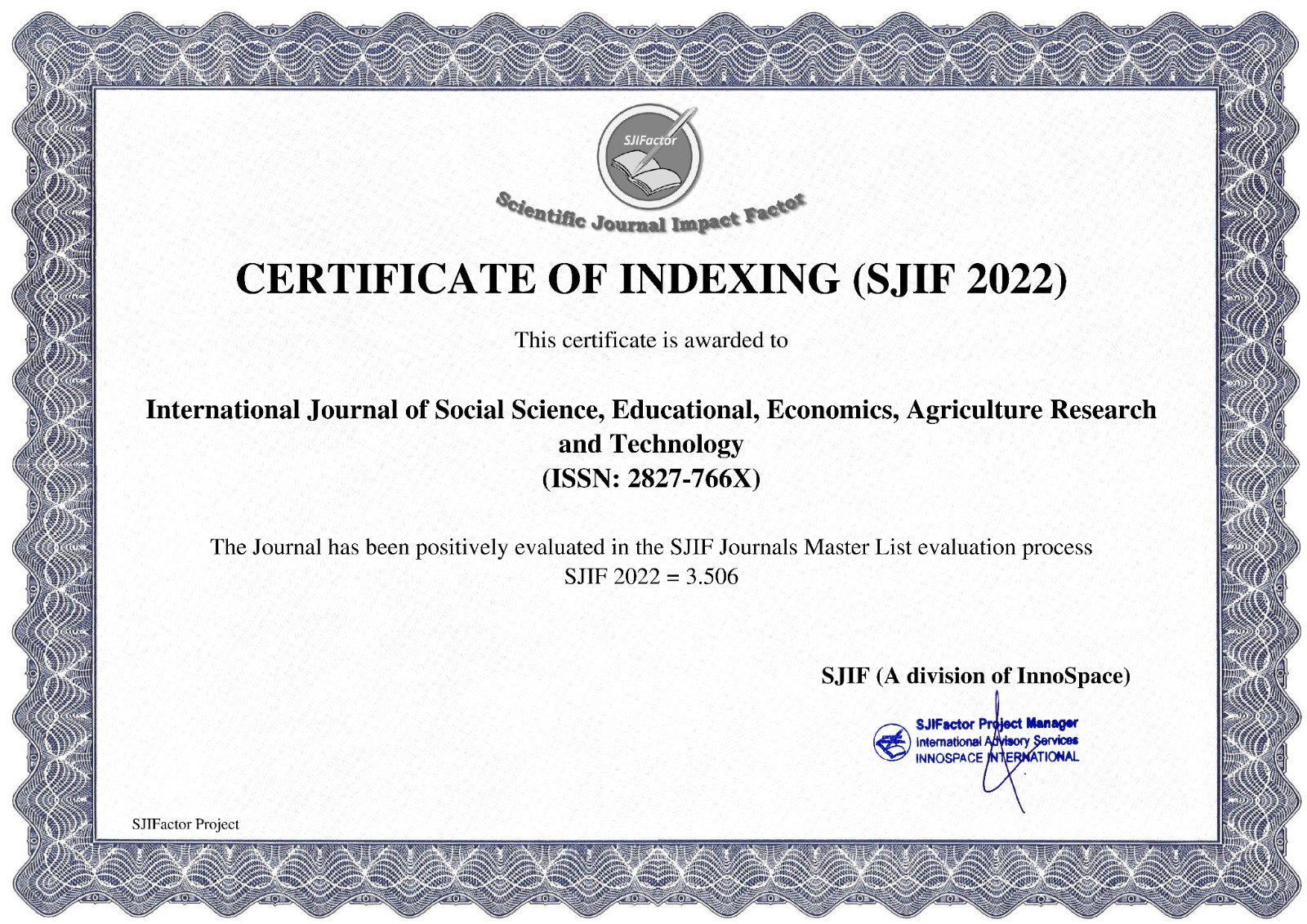THE INFLUENCE OF GREEN MARKETING AND BRAND IMAGE ON CONSUMER LOYALTY IN SUPPORTING THE ACHIEVEMENT OF SDGS IN THE RETAIL INDUSTRY
Main Article Content
Dindin Aminudin
Abu Naim
Fachmi Al Faroqi
Ikraman
Nor Fatah Ulinnuha
Danu Noval Ramadhoni
Awareness of environmental issues is driving the retail industry to adopt green marketing strategies as an effort to support the Sustainable Development Goals (SDGs). However, there are still issues regarding low consumer loyalty amidst intense competition and sustainability demands. This research aims to analyze the influence of green marketing and brand image on consumer loyalty in the context of achieving SDGs, specifically in the retail industry of Tangerang Regency.This research uses a quantitative approach with 200 respondents selected thru purposive sampling. Data was collected thru Likert-scale questionnaires and analyzed using multiple linear regression via SPSS. The analysis results show that green marketing has a significant positive effect on consumer loyalty with a coefficient of 0.412 and a significance value of 0.000 (p < 0.05), contributing 41.2% of the influence. Brand image also has a significant positive effect with a coefficient of 0.368 and a significance value of 0.000 (p < 0.05), contributing 36.8%. Simultaneously, both variables explain 62.5% of the variation in consumer loyalty (R² = 0.625).
This finding indicates that consistent implementation of green marketing and building a brand image aligned with sustainability values can significantly increase consumer loyalty and support the achievement of SDGs in the retail sector.
Atkins, M. (2024). Should banks face criminal prosecution for breaches of Money Laundering Regulations or are civil fines effective. Analysis of the significance of the first ever criminal conviction of a bank (NatWest) for breaches of the Money Laundering Regulations. Journal of Economic Criminology, 6, 100097. https://doi.org/10.1016/j.jeconc.2024.100097
Ayokunmi, L. A., Abu Seman, N. A., Rashid, U. K., & Mohamad, A. (2025). The Role of Social Media Marketing as an ICT Tool in Improving Supply Chain Sustainability of SMEs: A Systematic Literature Review. Procedia Computer Science, 253, 1392–1401. https://doi.org/10.1016/j.procs.2025.01.201
Banfi, A., Ficcadenti, V., Pampurini, F., & Quaranta, A. G. (2025). Economic Proximity and Cooperative Banks Strategies. Finance Research Letters, 107842. https://doi.org/10.1016/j.frl.2025.107842
Jave-Chire, M., Alvarez-Risco, A., & Guevara-Zavaleta, V. (2025). Footwear industry’s journey through green marketing mix, brand value and sustainability. Sustainable Futures, 9. https://doi.org/10.1016/j.sftr.2025.100561
Jiang, J., Huhmann, B. A., & Liu, S. (2025). Brand influences on the relationship between livestream seller commissions and sales. Journal of Business Research, 196. https://doi.org/10.1016/j.jbusres.2025.115431
Macca, L. S., Ballerini, J., Santoro, G., & Dabić, M. (2024). Consumer engagement through corporate social responsibility communication on social media: Evidence from Facebook and Instagram Bank Accounts. Journal of Business Research, 172. https://doi.org/10.1016/j.jbusres.2023.114433
Nadeem, W., Ashraf, A. R., & Kumar, V. (2025). Fostering consumer engagement with sustainability marketing using augmented reality (SMART): A climate change response. Journal of Business Research, 192. https://doi.org/10.1016/j.jbusres.2025.115289
Rehman, M., Zelin, T., Wang, C., Zhang, P. S., Hussain, T., Khan, M. A., & Bajwa, F. A. (2025). Digital CSR impact on Chinese auto brands: Mediating and moderating customer satisfaction and engagement. Acta Psychologica, 258. https://doi.org/10.1016/j.actpsy.2025.105155
Sahoo, D., Soni, N., & Mishra, A. (2025). Emojis and consumer-based brand equity: Mediation role of engagement. Journal of Open Innovation: Technology, Market, and Complexity, 11(3). https://doi.org/10.1016/j.joitmc.2025.100574
Shah, S. (n.d.). Assessing the Effectiveness of Alpha Ranking System in Pharmacy Admissions.
Sneideriene, A., & Legenzova, R. (2025). Greenwashing prevention in environmental, social, and governance (ESG) disclosures: A bibliometric analysis. Research in International Business and Finance, 74. https://doi.org/10.1016/j.ribaf.2024.102720
Tao, Z., & Chao, J. (2024). Unlocking new opportunities in the industry 4.0 era, exploring the critical impact of digital technology on sustainable performance and the mediating role of GSCM practices. Innovation and Green Development, 3(3). https://doi.org/10.1016/j.igd.2024.100160
Torrent-Sellens, J., Enache-Zegheru, M., & Ficapal-Cusí, P. (2025). Twin transitions or a meeting of strangers? Unravelling the effects of AI and innovations on economic, social and environmental MSMEs sustainability. Technology in Society, 81. https://doi.org/10.1016/j.techsoc.2025.102866
Wijaya, L. I., Zunairoh, Z., Izharuddin, M., & Rianawati, A. (2025). Scope of E-Commerce use, innovation capability, and performance: Food sector MSMEs in Indonesia. Journal of Open Innovation: Technology, Market, and Complexity, 11(1). https://doi.org/10.1016/j.joitmc.2024.100459
Zuhroh, D., Jermias, J., Ratnasari, S. L., Sriyono, Nurjanah, E., & Fahlevi, M. (2025). The impact of sharing economy platforms, management accounting systems, and demographic factors on financial performance: Exploring the role of formal and informal education in MSMEs. Journal of Open Innovation: Technology, Market, and Complexity, 11(1). https://doi.org/10.1016/j.joitmc.2024.100447






















